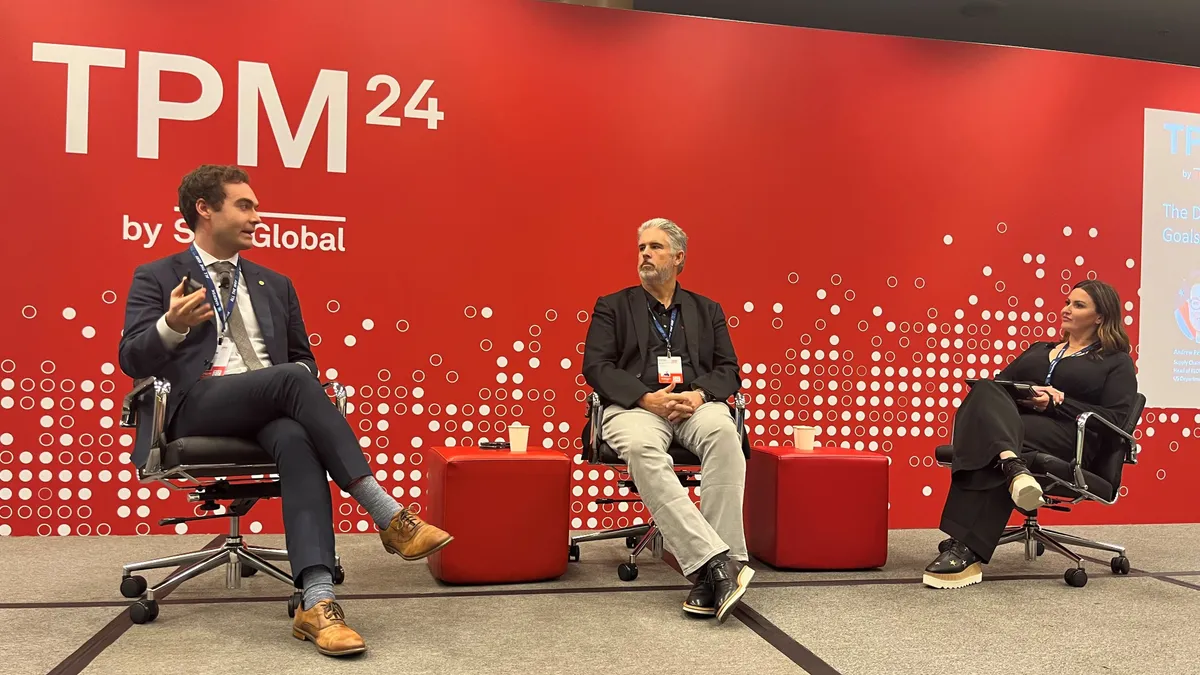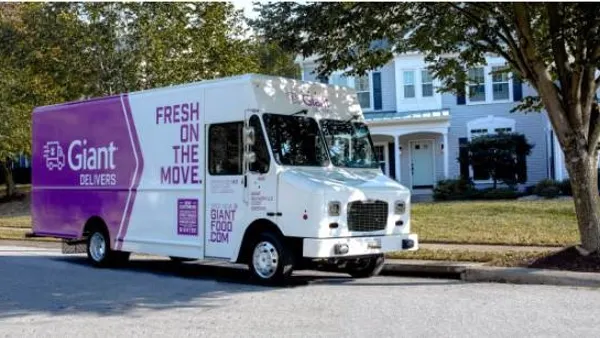Dive Brief:
- PetSmart plans to leverage data from the federal Freight Logistics Optimization Works platform to create efficiencies in its supply chain, an executive said at TPM24 by S&P Global in Long Beach, California.
- The data helps “anticipate the next move on the chessboard,” said Ed Oldham, SVP and Chief Supply Chain Officer at PetSmart. If congestion or delays can be foreseen weeks in advance, for example, the company can make more efficient decisions for its supply chain.
- FLOW was first launched in 2022 and includes more than 55 participants, including carriers, ports and shippers like PetSmart.
Dive Insight:
During the pandemic, PetSmart experienced a shortage of some pet foods and in response the company worked with transportation and manufacturing partners to increase supply to meet demand. Having learned from COVID-19-led struggles, the retailer is working towards optimizing its supply chain with the FLOW program.
Oldham explained retailers typically work with in-store dates, which is the date when a product must be available in store. To optimize those, retailers must consider the dates carriers pick up a shipment overseas, plus the expected arrivals at ports, domestic distribution centers, and stores. When there are delays, retailers act quickly to alter plans by modifying transport or deciding if a replacement product is needed.
“A healthy amount of what you're trying to do in retail is introduce new products or new programs to the market and we’re always working on: 'What week do we want this to land in the store?',” Oldham said.
PetSmart wants to avoid reactionary decision making like using airfreight to expedite shipments so they arrive on time. The FLOW program makes an assorted of data available — such as bookings, marine terminal slots, chassis availability and gate moves — that can help prevent such decisions.
“It sucks to have to write a large check to air carriers for all sorts of reasons that gets people annoyed and wastes a lot of money,” the chief supply chain officer said.
By contrast, knowing a six week delay is probable can help retailers find alternative goods to set up at the store for a short period of time, Oldham added.
“In our world that's what it’ll wind up being: Avoiding very reactionary decisions that drive a lot of extra expense and don’t really make the business better,” Oldham said. “We’ll manage the delay, we’ll inform them with the data that is in the FLOW initiative and life will be easier to work through.”
FLOW has gained significant interest in the industry since its launch in 2022, including from shippers, according to Andrew Petrisin, advisor for multimodal freight and head of the FLOW initiative at the Department of Transportation, who spoke on the same TPM24 panel as Oldham.















